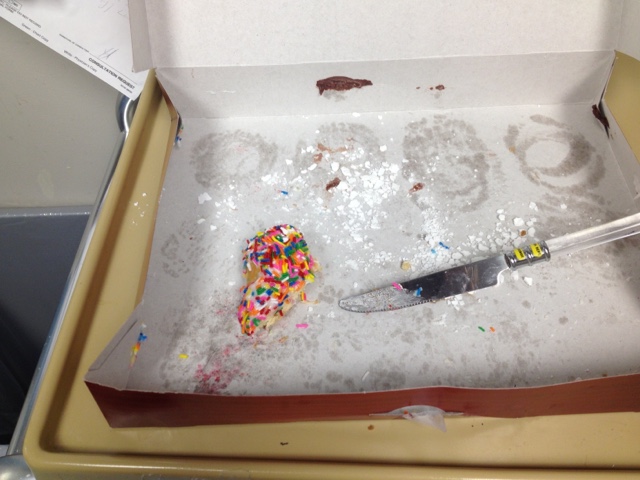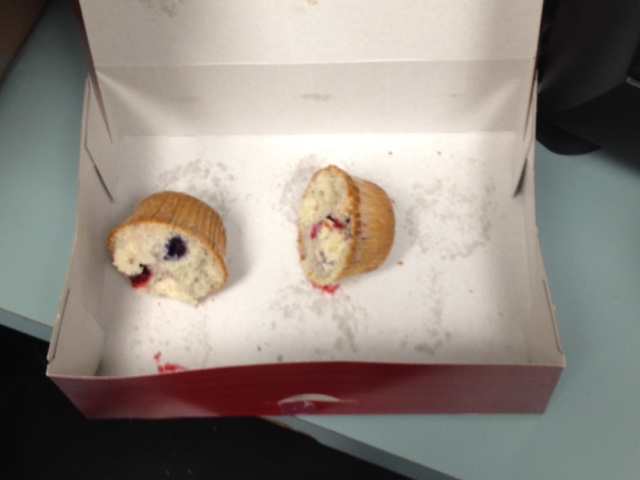There was recently an article published in a leading newspaper, referring to opioids, entitled "First Do No Harm". I have discussed is this in the past and may again in the future, however the use of this adage struck me.
I first heard this adage way back in medical school referring to anaesthesia and the fact that anaesthesia contradicts this principle.
In fact when the urologist discovers after the patient is asleep that the patient passed the stone already or the orthopod after the patient is asleep realizes that maybe he should have examined the patient or at least looked at the X-ray and all the patient needs is a cast, I reassure them. "Anaesthesia is good for you", I tell them. I hope this makes them feel better but most surgeons have no conscience anyway.
The fact is in medicine that we are constantly exposing patients to harm in the hope that we will make them better. We are in effect betting the ill effects of a treatment versus the likelihood of helping the patient.
The House of God had it down with rule XIII:
THE DELIVERY OF MEDICAL CARE IS TO DO AS MUCH NOTHING AS POSSIBLE.
This of course isn't always in the patient's best interest either although is probably in their best interest more often than we think.
In fact when the urologist discovers after the patient is asleep that the patient passed the stone already or the orthopod after the patient is asleep realizes that maybe he should have examined the patient or at least looked at the X-ray and all the patient needs is a cast, I reassure them. "Anaesthesia is good for you", I tell them. I hope this makes them feel better but most surgeons have no conscience anyway.
The fact is in medicine that we are constantly exposing patients to harm in the hope that we will make them better. We are in effect betting the ill effects of a treatment versus the likelihood of helping the patient.
The House of God had it down with rule XIII:
THE DELIVERY OF MEDICAL CARE IS TO DO AS MUCH NOTHING AS POSSIBLE.
This of course isn't always in the patient's best interest either although is probably in their best interest more often than we think.
For example how often do you hear an doctor justify a procedure or test by saying, "I didn't no what else to do" or "Well I had to do something". I have been guilty of this back when I was in general practice, in the pain clinic and quite often in anaesthesia when things are going south, how often do we try something random which we know probably won't work.
Here's some questions to ask yourself.
1. Based on your assessment is the patient going to die within the next few hours without treatment?
2. Do you have any idea of what is going on and will either the test you order help make the diagnosis or does the procedure or treatment at least have a reasonable chance of stabilizing things.
But speaking of aphorisms, what about the Hypocratic Oath. A patient advocate asked me about this oath a few months ago in connection with an op-ed he was going to write.
"First", I explained to him, "Many doctors, including me, have never taken the Hypocratic Oath." Some schools have an elaborate oath taking ceremony. My school didn't. Am I a worse doctor for that? "Secondly, " I went on, "there are multiple versions circulating including a modern version."
"Thirdly", I pointed out, "Many of the things proscribed in the Hypocratic Oath are actually part of medicine, like cutting for stone, administering noxious substances (chemotherapy, anaesthetics) and abortion (controversial but still part of medicine). ".
The Hypocratic Oath also has things like treating your teacher(s) for free. We have socialized medicine in Canada and I work in a city where I didn't train, but that doesn't mean I would be interested in treating pro bono the 100 or so physicians who taught me.
About 20 years ago, I bought a handsomely bound of the "Aphorisms of Hypocrates" which now sits in my bookcase along with some of the other handsomely bound historical books from the same series. And I read the Aphorisms. I can tell you that if you practised in the Hypocratic fashion, it is a question of who would get you first, the licensing body or the lawyers. I often wonder why we place such importance on the thoughts of somebody who practised over 2000 years ago. I do like reading the history of medicine if only because seeing how wrong prominent physicians were in the past, puts into the context the modern practice of medicine.
I think we need to spend less time worrying about doing no harm and more time stopping using outdated and irrelevant aphorisms.












